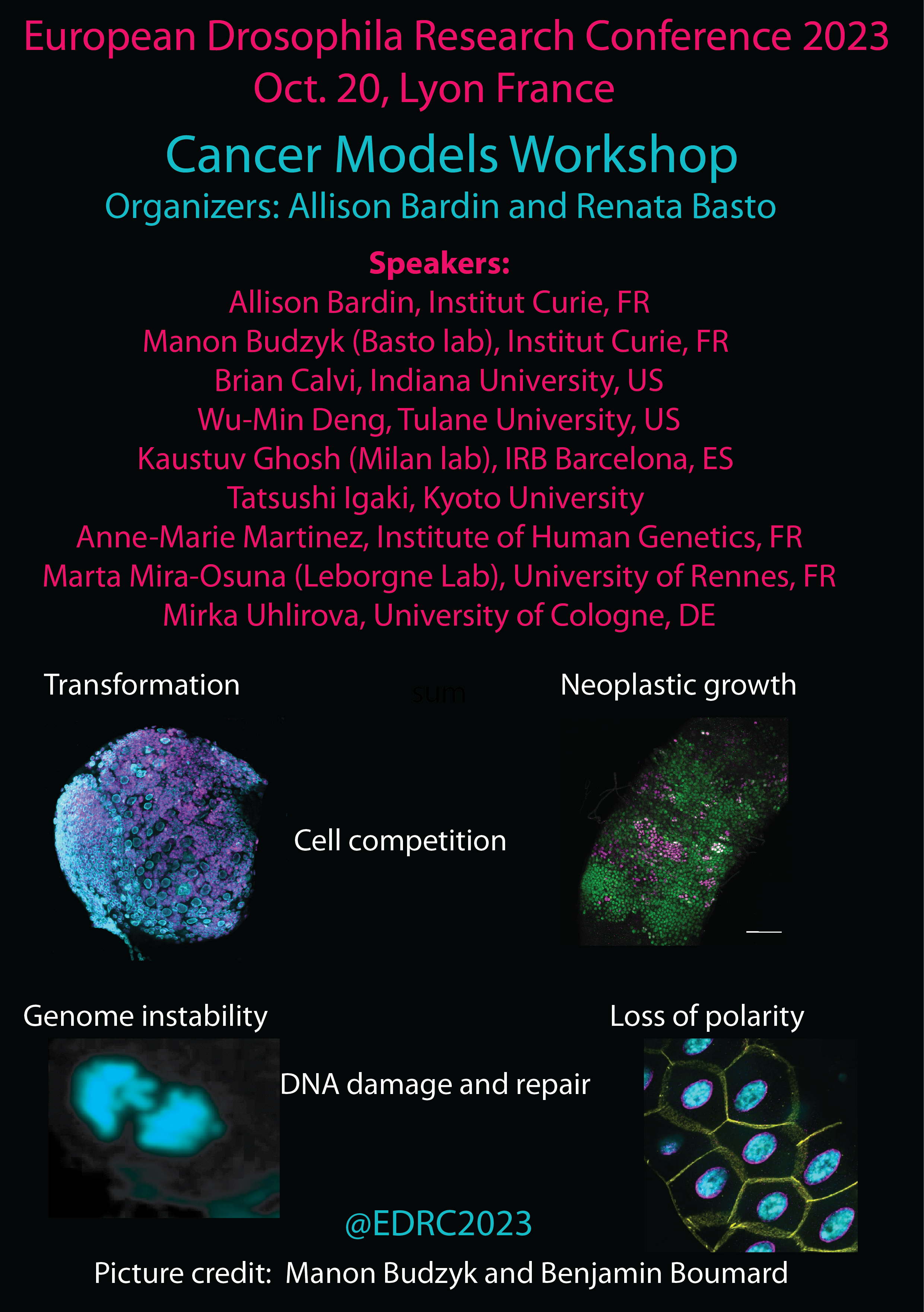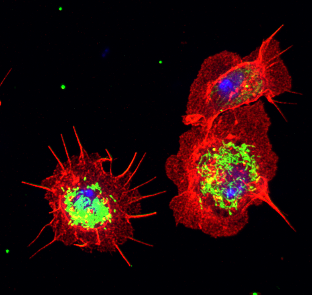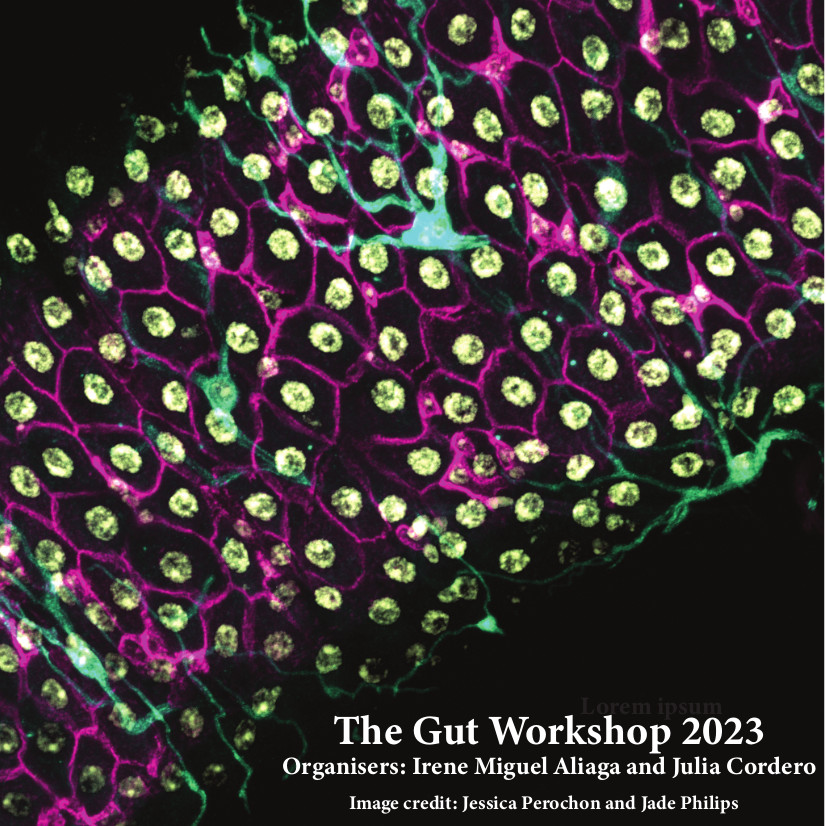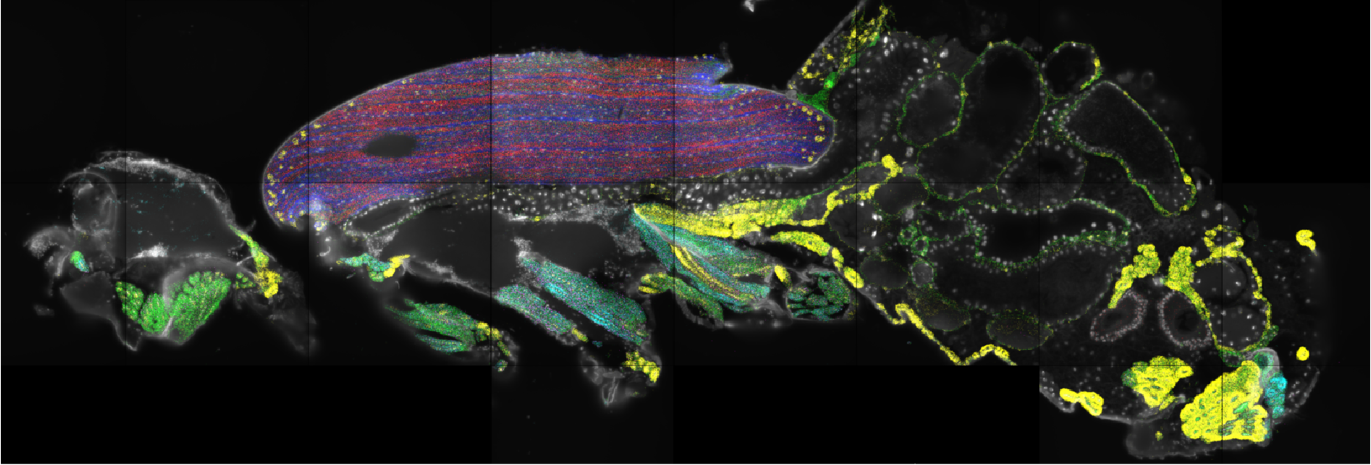
|
|
|
Program > WorkshopsThere will be six workshops at EDRC2023 on day 1, Friday October 20th early afternoon in parallel (1-3.15pm and 3, 3.30-5.45pm) ahead of the opening session (6pm).
Organized by Allison Bardin (Curie Institute, France) and Renata Basto (Curie Institute, France) Drosophila research has a long history of contributing to our understanding of the mechanisms of cancer initiation and propagation. These studies range from molecular mechanisms of DNA repair to polarity and neoplastic growth. The goal of the workshop will be to bring together scientists interested in these very diverse aspects of modelling cancer using Drosophila and to create cross-discipline dialogue spanning distinct cellular contexts from stem cells to epithelial cells.
Speakers (12 minutes talk + 3 minutes questions): 1. Allison Bardin (Institut Curie, Paris, France): Nucleotide sharing through gap junctions buffers replication stress
Organized by Elizabeth Rideout (University of British Columbia, Canada), Jenny Regan (University of Edinburgh, UK), and Bruno Hudry (Institut de Biologie Valrose, France) Sex differences in Drosophila development, physiology, and behaviour are found throughout the life course, and contribute to diverse phenotypes such as fertility, susceptibility to disease-related phenotypes, and lifespan. Yet, much remains to be uncovered about the genetic, hormonal, and molecular basis for these differences because many studies fail to include both sexes or to analyze data by sex. Speakers (12 minutes talk + 3 minutes questions): 1. Elizabeth Rideout: Studying sex differences in Drosophila
Orginized by Estee Kurant (University of Haifa, Israel), Angela Giangrande (IGBMC, Illkirch, France), Katrin Kierdorf (Albert-Ludwigs-Universität Freiburg, Germany), and Bruno Lemaitre (EPFL, Lausanne, Switzerland)
Speakers (12 minutes talk + 3 minutes questions): 1. Caroline Dillard (Oslo, Norway): Role and regulation of NF-kB -driven tumorigenesis 2. Parvathy Ramesh (Glasgow, United Kingdom): Immune control of local and systemic manifestations of Colorectal Cancer in Drosophila 3. Hila Toledano (Haifa, Israel): Spontaneous and massive elimination of germ cell progenitors by phagoptosis 4. Bayan Kharrat (Szeged, Hungary): Dual role for the orthologue of HECA, Headcase, in blood cell progenitor maintenance in the Drosophila lymph gland 5. Sara Monticelli (Illkirch, France): Early-wave macrophages: novel string-puller of late hematopoiesis 6. Fabian Hersperger (Freiburg, Germany): Crosstalk between hemocytes and fat body regulates energy mobilization during oxidative stress 7. Naden Khateb (Haifa, Israel): Masking phosphatidylserine in adult Drosophila brain prevents developmental neuronal phagoptosis and rescues neurodegeneration 8. Francesca Di Cara (Halifax, Canada): Metabolic alteration of the gut-brain axis triggers IMD-mediated immune signaling in aging brains leading to neurodegeneration 9. Martina Montanari (Marseille, France): Larval microbiota primes the Drosophila adult gustatory response
Organized by Julia Cordero (Institute of Cancer Sciences, University of Glasgow and CRUK Beatson Institute, Glasgow, UK) and Irene Miguel-Aliaga (Imperial College London / MRC London Institute of Medical Sciences, London, UK)
Speakers (12 minutes talk + 3 minutes questions): 1. Lucy O’Brien: Cutting loose: Mechanosensitive cell extrusions shrink the gut following food withdrawal 2. Golnar Kolahgar: Mechanotransduction in the stem cell niche 3. Ditte Andersen: Pvf1-PvR-mediated crosstalk between the trachea and the gut stimulates intestinal stem cell migration and divisions during gut regeneration 4. Sa Kan Yoo: Erebosis, cell death during homeostatic turnover of gut enterocytes 5. Chrysoula Pitsouli: The sterol transporter Npc2c controls intestinal stem cell mitosis and host-microbiome interactions in Drosophila 6. Fumiaki Obata: Gut Microbiome for metabolic homeostasis and inflammaging 7. Edan Foley: Immune Regulation of Intestinal Stem Cell Survival 8. Ryusuke Niwa: A high-protein diet-responsive enteroendocrine hormone regulates feeding behavior and metabolic optimization in Drosophila 9. Katerina Siudeja: Somatic genome instability and endogenous retroelement activity
Organized by Helena Cochemé (MRCLMS (London Institute of Medical Sciences), & Imperial CollegeLondon, UK) and Gilles Storelli (CECAD (Cluster of Excellence for Aging Research) University of Cologne, Germany) Ageing is a c
Speakers (12 minutes talk + 3 minutes questions): 1. Sara AL ISSA (Institute of Neurosciences Paris-Saclay (NeuroPSI), France): Characterization of a cluster of three snoRNAs, including jouvence, involved in lifespan, neurodegeneration, and metabolism, in Drosophila 2. Geetanjali CHAWLA (Shiv Nadar Institute of Eminence, India): miR-375 regulates dietary restriction dependent enhancement of lifespan in Drosophila 3. Gaia FABRIS (University of Helsinki, Finland): PWP1 affects aging by mediating intestinal stem cell homeostasis in a nutrient dependent manner 4. Claudia LENNICKE (Imperial College London, UK):Redox regulation of autophagy extends lifespan in Drosophila 5. Polina REICHERT (University of Glasgow, UK): Mitochondrial redox protein quality control as a key determinant in ageing 6. Michael RERA (Centre de Recherche Interdisciplinaire, France): Studying ageing as a two phases process: into Smurfness 7. Mathilde SOLYGA (Institute of Biology Valrose, France): Regulation and function of ribonucleoprotein granules in the aging Drosophila brain 8. Wei SONG (Wuhan University, China): Renal NF-kB activation impairs uric acid homeostasis to shorten lifespan in the context of tumors 9. Alessio VAGNONI (King's College London, UK and University of Coimbra, Portugal): In vivo characterisation of mitochondrial contact sites in Drosophila neurons: implications for ageing and neurodegeneration
Organized by Frank Schnorrer (IBDM, Marseille, France) and Pavel Tomancak (MPI CBG, Dresden, Germany)
This interdisciplinary workshop aims to introduce and discuss quantitative approaches to various imaging technologies applied or developed for Drosophila biology. It will also highlight smart developments to convert images to quantitative data. Speakers (12 minutes talk + 3 minutes questions): 1. Pavel Tomancak (MPI CBG, Dresden, Germany): Mastodon: the real deal for developmental lineage analysis 2. Romain Levayer (Institut Pasteur, Paris, France): Automatic detection of cellular events in large movies through machine learning 3. Katja Röper (LMB, Cambridge, UK): Imaging the mechanisms and mechanics of tube morphogenesis 4. Stephan Preibisch (Janelia Research Campus, Ashburn, USA): Reconstructing the complete fruit fly central nervous system connectome from isotropic FIB-SEM data 5. Virginia Pimmett (IGMM, Montpellier, France, Mounia Lagha lab): The central dogma goes live in the early embryo 6. Matteo Rauzi (iBV, Nice): Composite morphogenesis: how can a tissue fold and extend at the same time 7. Markus Affolter (Biozentrum, Basel, Switzerland): Engineer the fly genome for protein visualization and manipulation 8. Frank Schnorrer (IBDM, Marseille, France): Nanobodies, DNA-PAINT super-resolution imaging and spatial transcriptomics in adult fly tissue
Looking forward to welcoming you at the upcoming EDRC in Lyon ! Best regards, The EDRC2023 Organizing Committee (F.Leulier, Y. Ghavi-Helm, M. Grammont, J. Enriquez, B.Mollereau, B.Loppin, S.Merabet) |

 The function of the immune system is not limited to the control of infectious agents.. It plays important roles in removing dead cells and limiting tumor growth. It also works a signaling hub in development and physiology, hence maintaining tissue and energy homeostasis. Furthermore, dysregulation of the immune system upon aging, referred to as ‘inflammaging’, or upon changes induced by diet, referred to as “metaflammation” are now linked to many chronic diseases and seem to be well conserved in Drosophila. Previous studies have revealed that conditions such as tumor growth, neurodegeneration or obesity have an inflammatory axis, which essentially contributed to disease onset and progression. Thus, an exciting new line of research is to analyze the role that immune system components play beyond their traditional role in host defense and decipher their impact and mode of action in development, steady state and non-infectious disturbances. This workshop will be a forum to discuss new findings implicating the cellular and humoral immune systems in the control of the developmental immunity, aging, immunometabolism, neurodegeneration, tumor control, cell competition and other non-infectious contexts. We believe that Drosophila provides a powerful system to investigate the role of immunity in development, health and disease conditions.
The function of the immune system is not limited to the control of infectious agents.. It plays important roles in removing dead cells and limiting tumor growth. It also works a signaling hub in development and physiology, hence maintaining tissue and energy homeostasis. Furthermore, dysregulation of the immune system upon aging, referred to as ‘inflammaging’, or upon changes induced by diet, referred to as “metaflammation” are now linked to many chronic diseases and seem to be well conserved in Drosophila. Previous studies have revealed that conditions such as tumor growth, neurodegeneration or obesity have an inflammatory axis, which essentially contributed to disease onset and progression. Thus, an exciting new line of research is to analyze the role that immune system components play beyond their traditional role in host defense and decipher their impact and mode of action in development, steady state and non-infectious disturbances. This workshop will be a forum to discuss new findings implicating the cellular and humoral immune systems in the control of the developmental immunity, aging, immunometabolism, neurodegeneration, tumor control, cell competition and other non-infectious contexts. We believe that Drosophila provides a powerful system to investigate the role of immunity in development, health and disease conditions. Since its conception in 2011 ‘The Gut Workshop’ has become one of the flagships of the EDRC. After the long COVID-imposed hiatus, we are excited to re-launch it at EDRC 2023 in Lyon. Groundbreaking work has been done in the past three years on the role of the digestive tract as a fundamental barrier epithelium and coordinator of multiorgan physiology. The goal of this workshop is to bring together the most exciting ongoing research on local and systemic functions regulated by the intestine. Our exciting program includes research that spans cellular, tissue level and organismal scale. Topics will encompass intestinal stem cell biology, including their interaction with the microenvironment, gut/microbiome interactions and interorgan signalling between the intestine and metabolic, immune, and neuronal systems.
Since its conception in 2011 ‘The Gut Workshop’ has become one of the flagships of the EDRC. After the long COVID-imposed hiatus, we are excited to re-launch it at EDRC 2023 in Lyon. Groundbreaking work has been done in the past three years on the role of the digestive tract as a fundamental barrier epithelium and coordinator of multiorgan physiology. The goal of this workshop is to bring together the most exciting ongoing research on local and systemic functions regulated by the intestine. Our exciting program includes research that spans cellular, tissue level and organismal scale. Topics will encompass intestinal stem cell biology, including their interaction with the microenvironment, gut/microbiome interactions and interorgan signalling between the intestine and metabolic, immune, and neuronal systems. 


